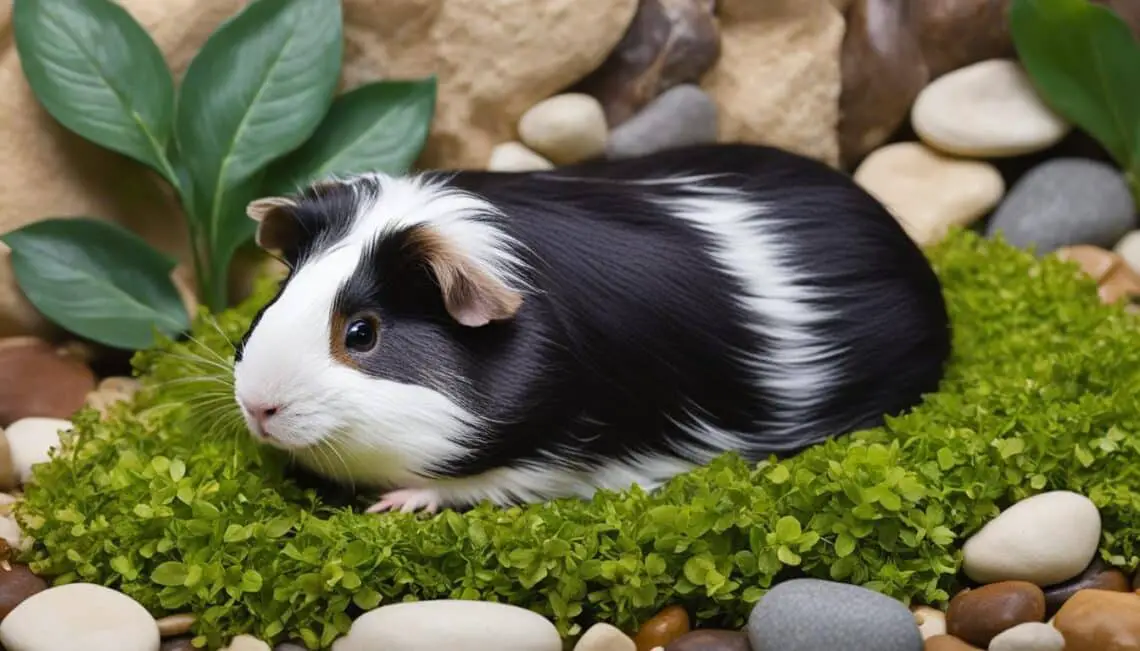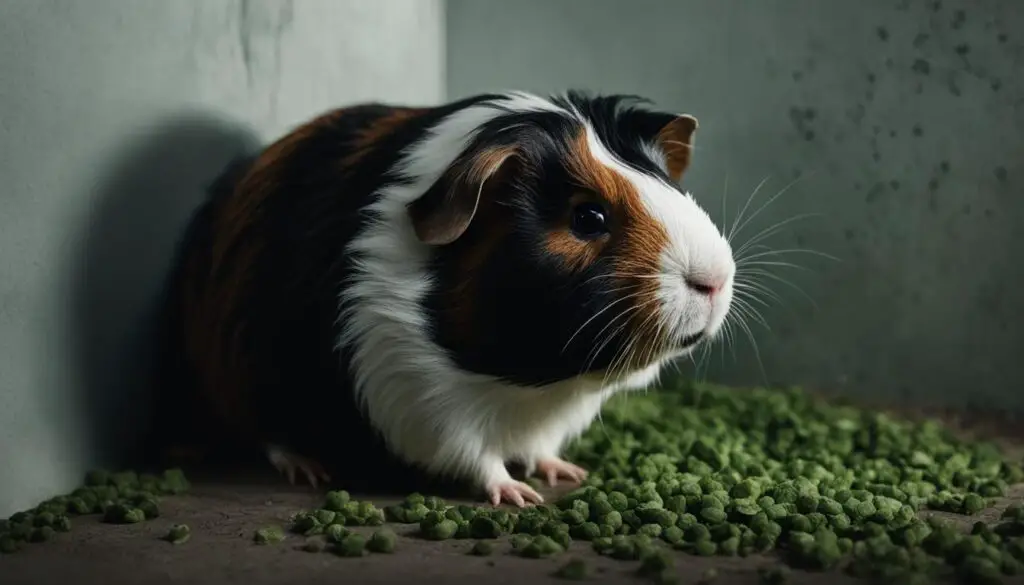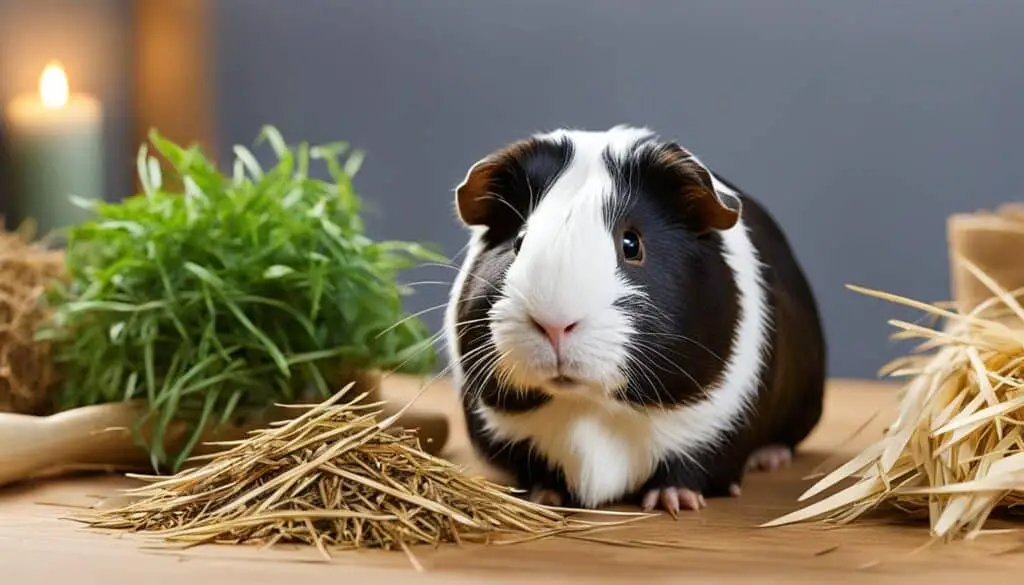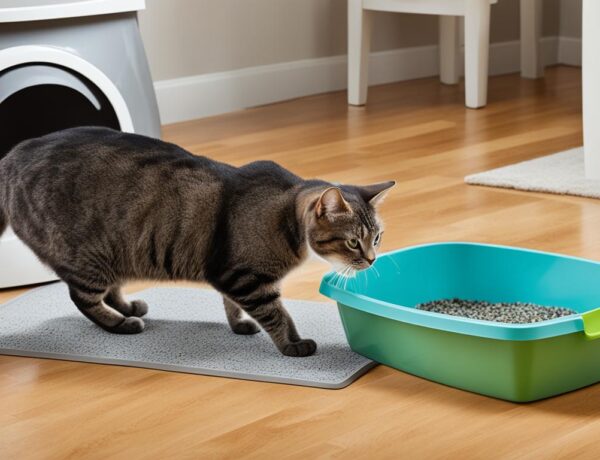As a devoted guinea pig owner, I am always seeking ways to provide the best care for my adorable furry companions. Stress is a common concern among guinea pigs, and it’s important to address it using natural remedies and a holistic approach. By understanding their dietary needs, including essential vitamins and supplements, we can promote their overall well-being and help them thrive.
Key Takeaways:
- Guinea pigs require a balanced diet and specific nutrients for optimal health.
- Vitamin C is crucial for guinea pigs as they cannot produce it naturally.
- Supplements can be used as treats but should not replace a well-rounded diet.
- Consultation with a veterinarian is essential to determine individual needs.
- A holistic approach considers the overall well-being of guinea pigs.
Essential Supplements for Guinea Pigs
Guinea pigs may benefit from a variety of supplements to address their specific dietary needs. Incorporating these supplements into their daily routine can contribute to their overall health and well-being. Here are some essential guinea pig supplements that can provide various health benefits:
- GuineaDad RoseHip Organic Herbal Treat: This supplement is a great source of vitamin C, which is essential for guinea pigs as they cannot produce it naturally. Vitamin C helps boost their immune system, prevent scurvy, and protect against free radicals.
- NHV’s Bladder Stones & Urinary Crystals Kit: Designed specifically for guinea pigs, this kit contains natural ingredients that provide relief from kidney pain, prevent urinary crystal formation, and protect against urinary tract infections.
- NHV Alge-Ex and NHV Ouch Away Spray: These supplements are beneficial in treating and soothing mite infections that guinea pigs may encounter.
- NHV Mouth Drops and NHV Turmeric: These supplements aid in maintaining oral health and reduce discomfort caused by dental malocclusion, a common issue in guinea pigs.
- NHV TumFlora: This supplement supports a healthy gut and helps prevent intestinal issues, ensuring optimal digestive health for guinea pigs.
- NHV Felimm and NHV All Clear Ointment: These supplements work together to counter dermatophytosis, a fungal infection that guinea pigs may experience.
These supplements are intended to be used as part of a comprehensive care plan for guinea pigs. It’s important to consult with a veterinarian to determine the specific needs of your guinea pig and the appropriate usage of these supplements. Regular veterinary check-ups and a balanced diet should always be the foundation of guinea pig care.
Frequently Asked Questions
Q: Are these supplements suitable for all guinea pigs?
A: While these supplements are generally safe for guinea pigs, it’s essential to consult with a veterinarian to determine if they are suitable for your guinea pig’s individual needs.
Q: Can these supplements replace a balanced diet?
A: No, these supplements should not replace a balanced diet. They are intended to complement a guinea pig’s diet and provide additional support for specific health concerns.
Q: How often should I give these supplements to my guinea pig?
A: The frequency of supplement administration depends on the specific supplement and your guinea pig’s needs. Your veterinarian can provide guidance on the appropriate dosage and frequency.
| Supplement | Benefits | Usage |
|---|---|---|
| GuineaDad RoseHip Organic Herbal Treat | Provides vitamin C, boosts immune system, prevents scurvy, protects against free radicals | As a treat in moderation |
| NHV’s Bladder Stones & Urinary Crystals Kit | Relieves kidney pain, prevents urinary crystal formation, protects against urinary tract infections | As directed by a veterinarian |
| NHV Alge-Ex and NHV Ouch Away Spray | Treats and soothes mite infections | As directed by a veterinarian |
| NHV Mouth Drops and NHV Turmeric | Maintains oral health, reduces discomfort from dental malocclusion | As directed by a veterinarian |
| NHV TumFlora | Supports a healthy gut, prevents intestinal issues | As directed by a veterinarian |
| NHV Felimm and NHV All Clear Ointment | Counters dermatophytosis and fungal infections | As directed by a veterinarian |
Remember, guinea pig supplements should always be used in consultation with a veterinarian and as part of a comprehensive care plan. The well-being of your furry friend should be the top priority.
Preventing Common Guinea Pig Diseases
Recognizing symptoms early is crucial for proactive care in guinea pigs. Changes in appetite, excessive licking, antisocial behavior, lethargy, lack of interest, and weight loss may indicate a problem. To ensure the well-being of your furry friend, it’s important to be aware of common guinea pig diseases and take preventive measures to avoid them.
Symptoms to Watch Out For
- Changes in appetite
- Excessive licking
- Antisocial behavior
- Lethargy
- Lack of interest
- Weight loss
By paying attention to these symptoms, you can catch potential health issues early and seek appropriate care from a veterinarian.
Common Conditions in Guinea Pigs
Guinea pigs are prone to various health conditions. Some of the common conditions include:
- Urinary issues: Due to calcium intake and genetic predisposition
- Mite infections
- Dental malocclusion
- Enterotoxemia caused by bacterial overgrowth
- Dermatophytosis
Being aware of these conditions can help you take preventive measures and address them promptly if they occur.
Supplement Support
While a well-balanced diet is crucial, supplements can provide additional support in addressing common guinea pig diseases. NHV offers a range of supplements that can assist in prevention and management:
- Tripsy: Supports urinary system health
- Alge-Ex: Helps treat and soothe mite infections
- Mouth Drops: Maintains oral health and reduces discomfort from dental malocclusion
- TumFlora: Supports a healthy gut and prevents intestinal issues
- Felimm: Counters dermatophytosis and fungal infections
Consult with your veterinarian to determine the suitability of these supplements for your guinea pig.
Prevention Through Regular Veterinary Visits and Diet
In addition to being attentive to symptoms and considering supplement support, regular veterinary visits and a well-balanced diet are essential for preventing and managing guinea pig diseases. Your veterinarian can provide expert guidance on preventive measures specific to your guinea pig’s needs.
The Importance of Veterinary Care for Guinea Pigs
Guinea pigs, like any other pets, require regular veterinary care to ensure their health and well-being. Regular check-ups with a veterinarian are essential for monitoring their overall health, detecting any potential issues at an early stage, and providing appropriate treatment. As a guinea pig owner, it is crucial to understand the importance of professional guidance in maintaining the optimal health of your furry friend.
When it comes to guinea pig health, veterinary care encompasses various aspects. One of the key roles of a veterinarian is to provide dietary recommendations tailored to your guinea pig’s needs. They can advise on the proper balance of hay, fresh fruits and vegetables, pellets, and water to ensure your pet’s nutritional requirements are met. Additionally, they can guide you in choosing the right supplements, if necessary, to address any specific dietary needs your guinea pig may have. It’s important to note that supplements should never replace a balanced diet and should only be used under professional guidance.
| Proactive Measures in Guinea Pig Care | Benefits |
|---|---|
| Regular Veterinary Check-ups | Detects early signs of potential health issues |
| Proper Nutrition | Maintains overall health and prevents deficiencies |
| Preventive Vaccinations | Protects against common diseases |
| Hygiene and Cage Maintenance | Prevents infections and ensures a clean living environment |
Veterinarians also play a crucial role in diagnosing and treating specific conditions that may arise in guinea pigs. Whether it’s a respiratory infection, dental issues, skin problems, or any other health concern, veterinarians are equipped with the necessary knowledge and resources to provide accurate diagnoses and prescribe appropriate medications. They can offer personalized care plans based on your guinea pig’s unique needs, ensuring the best possible outcomes for their health and well-being.
In addition to treating existing conditions, veterinarians can guide you in taking proactive measures to prevent common guinea pig diseases. This includes regular vaccinations, maintaining proper hygiene and cage cleanliness, providing a stress-free environment, and implementing a holistic approach to guinea pig care. Taking these proactive measures significantly reduces the risk of your guinea pig developing health issues and ensures they live a happy, healthy life.
Remember, as a guinea pig owner, you are responsible for your pet’s well-being. Collaborating with a veterinarian and following their advice is essential in providing the best care possible for your furry companion. Veterinary care, combined with proactive measures, helps ensure that your guinea pig remains healthy, happy, and active for years to come.
Conclusion
Guinea pigs are delicate and affectionate pets that require specialized care to maintain their health and well-being. As pet owners, it’s our responsibility to provide them with the right nutrition and attention they need. Natural supplements can be a valuable addition to their diet, offering support for specific health concerns and improving overall quality of life.
However, it’s important to remember that supplements should never replace the essential nutrients that guinea pigs obtain from a balanced diet. They should be used as treats, not meal replacements. A well-balanced diet consisting of hay, fresh fruits and vegetables, pellets, and water is crucial for their overall health.
Regular veterinary visits are vital in keeping our guinea pigs healthy. These check-ups allow veterinarians to monitor their wellness and identify any potential issues early on. Paying attention to behavioral changes can also provide valuable insight into their health and well-being. And by providing holistic care, including proper nutrition and proactive measures, we can ensure a happy and healthy life for our beloved guinea pigs.
FAQ
What are the essential supplements for guinea pigs?
Essential supplements for guinea pigs include GuineaDad RoseHip Organic Herbal Treat for vitamin C, NHV’s Bladder Stones & Urinary Crystals Kit for kidney health, NHV Alge-Ex and NHV Ouch Away Spray for mite infections, NHV Mouth Drops and NHV Turmeric for oral health, NHV TumFlora for a healthy gut, and NHV Felimm and NHV All Clear Ointment for fungal infections. These supplements can be used in conjunction with a veterinarian-prescribed treatment plan.
What are the common guinea pig diseases and their symptoms?
Common guinea pig diseases include urinary issues, mite infections, dental malocclusion, enterotoxemia, and dermatophytosis. Symptoms to look out for include changes in appetite, excessive licking, antisocial behavior, lethargy, lack of interest, and weight loss.
Why is veterinary care important for guinea pigs?
Veterinary care is important for guinea pigs to monitor their overall health, detect early signs of potential issues, receive accurate diagnoses, and obtain appropriate medications. Veterinarians can also provide personalized care plans and dietary recommendations for guinea pigs.
Are supplements a replacement for a balanced diet?
No, supplements should not replace a balanced diet. They should be used as treats and not as meal replacements. A well-balanced diet of hay, fresh fruits and vegetables, pellets, and water is essential for guinea pig health.







No Comments